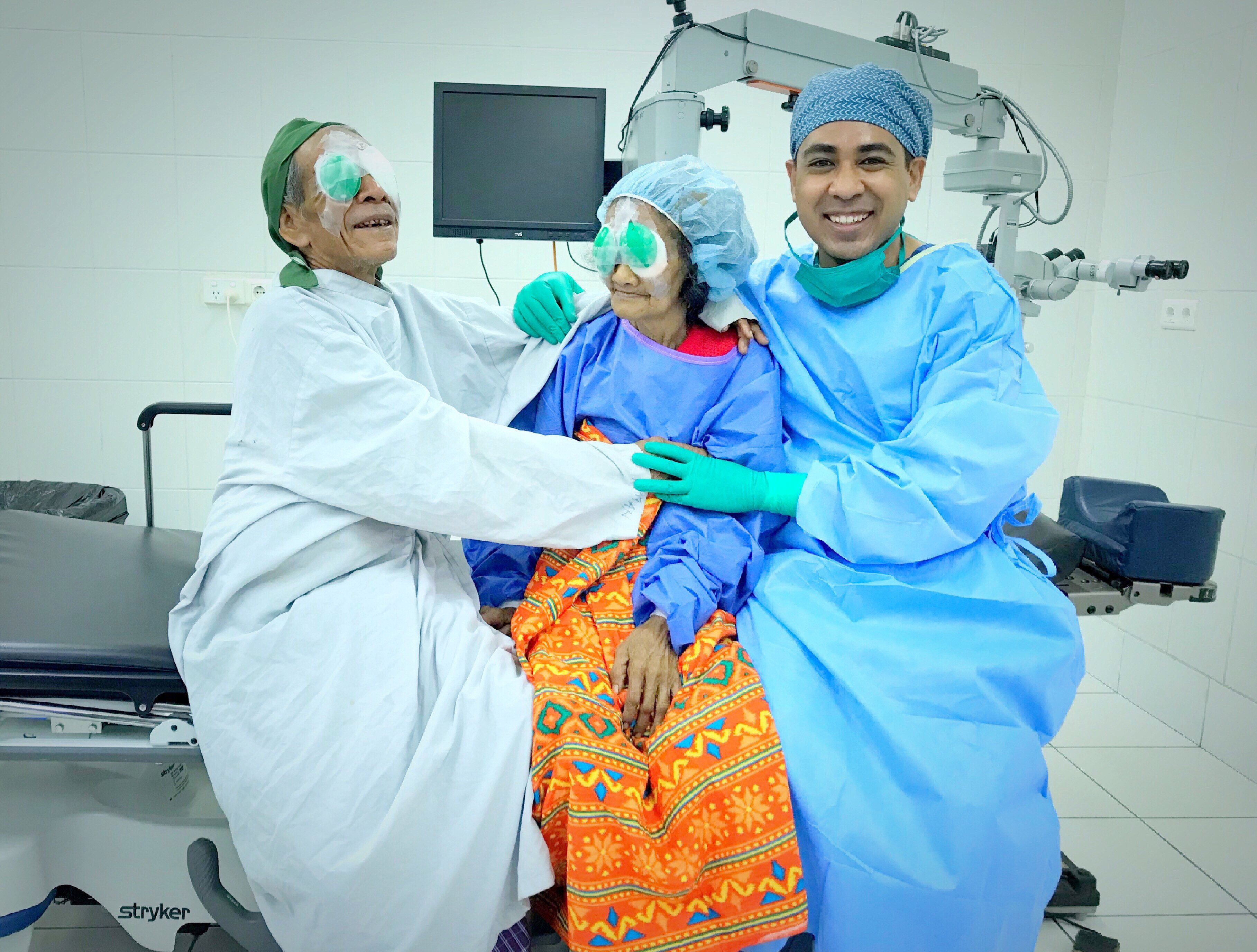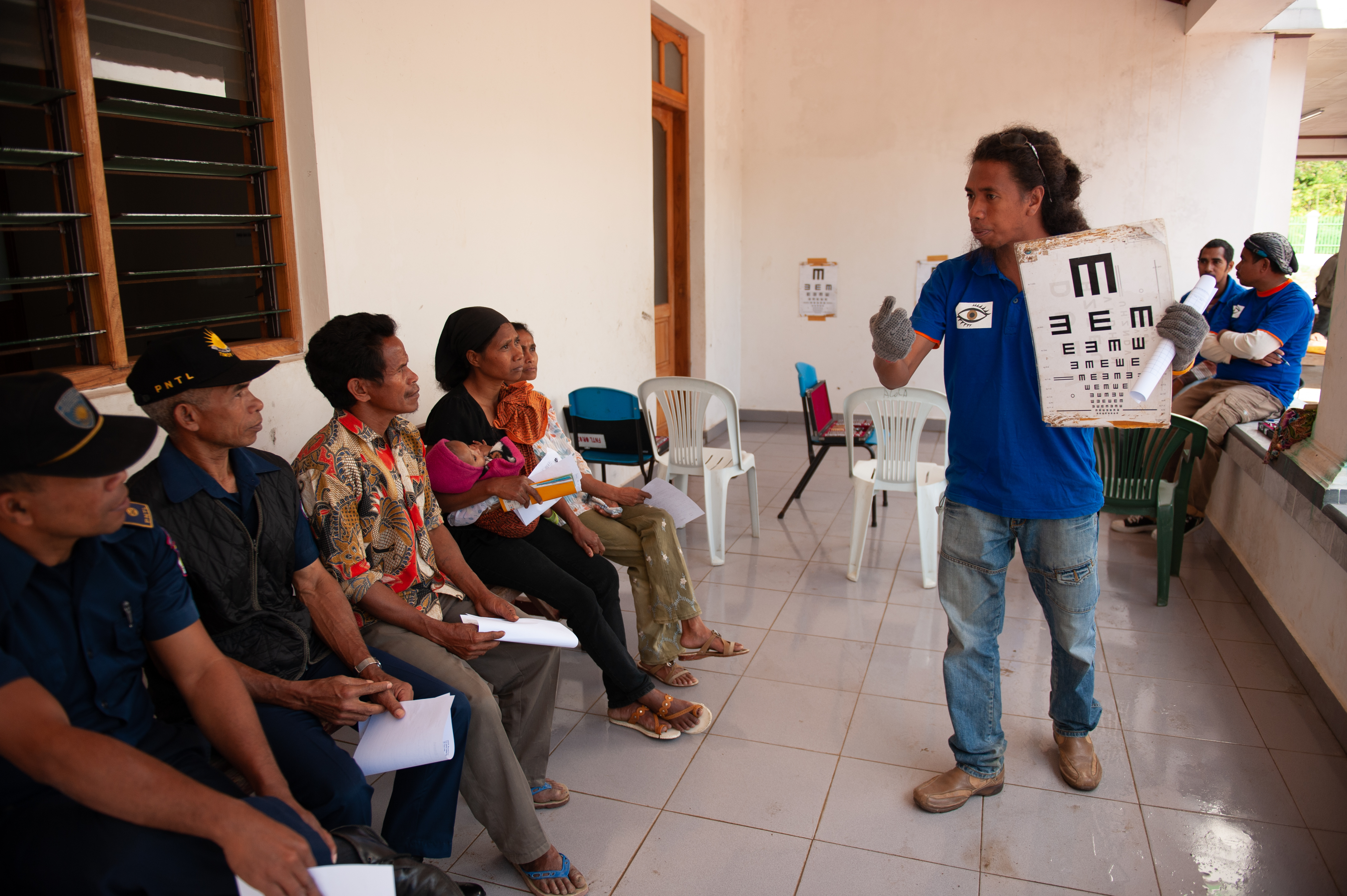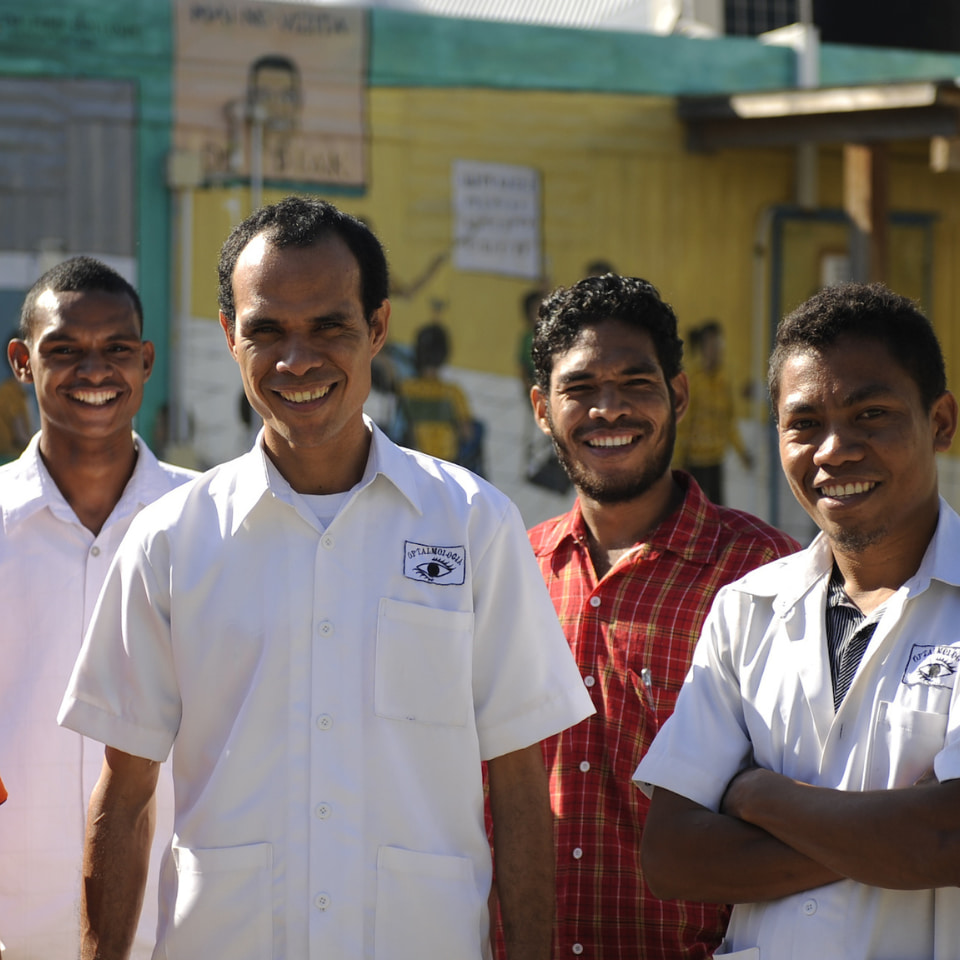What are the eye health problems in Timor-Leste?
The decades of civil unrest destroyed important health infrastructure in Timor-Leste and there is an acute shortage of medical personnel. Since independence, the nation has worked hard to restore and improve health services and build medical infrastructure for the future.
Approximately 85% of blindness in Timor-Leste is avoidable.
Each year, around 2,000 people go blind from cataract and 40,000 people have poor vision that affects their daily lives. To treat and prevent these cases of blindness, there needs to be early treatment and access to quality eye care.
Many people don’t seek treatment because they either can’t afford it, don’t know help exists or can’t access it. This means every year thousands of people lose their sight, making it harder to support themselves and their families and pushing them further into poverty.
This is especially devastating when roughly seven in ten people live in rural, farming areas and absolutely need their vision to work.
The country has a major shortage of health professionals, including eye health workers. There is only one Timorese ophthalmologist working in Timor-Leste and many social services are yet to extend beyond the capital Dili.

The Foundation's programs in Timor-Leste
Our program in Timor-Leste is managed by The Fred Hollows Foundation New Zealand, and the focal point is the purpose-built National Eye Centre, which opened in 2012 in Dili.
Funded by the Timor-Leste Ministry of Health, the Australian Government and The Fred Hollows Foundation, the centre is a far cry from the temporary operating theatre housed in a shipping container that preceded it.
The Timor-Leste program is supported by the Australian Government through the Australian NGO Cooporation Program (ANCP).
The National Eye Centre houses the country’s first comprehensive eye care service and offers treatment to urban Timorese as well as to patients referred from district hospitals and rural clinics. It provides onsite clinical and professional training to local nurses and technicians and in district clinics through outreach.
The Centre’s surgical team also conducts regular screening and surgery outreaches at selected district hospitals to reach patients who cannot afford to travel to Dili.
The Foundation is collaborating with the Timor-Leste Ministry of Health, partners and other NGOs to better coordinate eye care services in the country. We’re also supporting the government in drawing up a new five-year National Eye Health Strategy.
As Fred did many years ago, The Foundation is concentrating on building a local workforce.
We’re doing this in Timor-Leste by teaching community workers about basic eye health and available treatments who then encourage remote and rural patients to attend mobile outreach services.
We’re also working to make sure women have equal access to services and employment in eye health. In 2010, there were more men working as eye care workers; today, it’s women who outnumber men.

In 2024, The Foundation and its partners made great progress in key strategic areas in Australasia:
57,437
People screened.
10,502
Eye operations and treatments performed including cataract operations, surgeries to treat trachoma, diabetic retinopathy treatments and other sight saving or improving interventions.
105,537
People treated with antibiotics for trachoma.
3,658
Pairs of glasses distributed.
356
People trained including community health workers and clinic support staff.
11,201
School children and community members educated in eye health and sanitation.
The countries in Australasia that The Foundation works in are Australia, Timor-Leste, Papua New Guinea, Solomon Islands and Nauru.
